Staffing and funding problems leave tribal child welfare offices scrambling
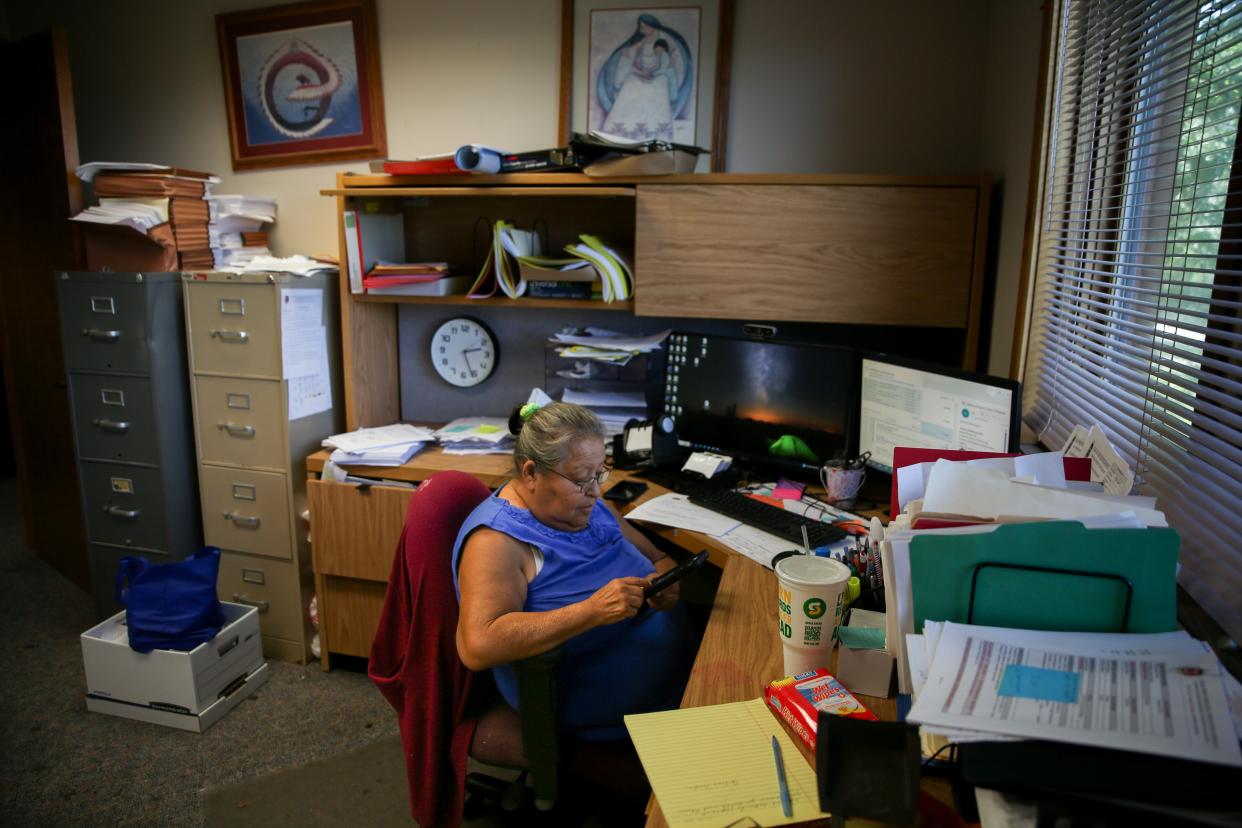
Editor's note: This is the seventh piece in a six-installment series about Native American children in South Dakota's foster care system, produced in partnership between the Argus Leader and South Dakota Searchlight.
Christian Blackbird isn’t sure how many children fell through the cracks.
He’d been at the Crow Creek Indian Child Welfare Act Office for more than a year with a staff of two under his management. But before he started in January 2022, the director’s chair he now sits in was vacant on and off for years, leaving children separated from their families without a lifeline to their tribes.
Part of Blackbird’s job is picking up the phone when the state calls to ask if children removed from their parents are tribal citizens. If no one’s there to take the call, the child cannot be placed with kin and could be placed hours away from their home.
Blackbird doesn’t live in Fort Thompson because of a lack of housing, part of the reason why ICWA offices on reservations across the state are struggling to find staff. Instead, he commutes from Pierre. It’s a quicker drive than four hours each week from Bismarck, North Dakota, where he lived when he started.
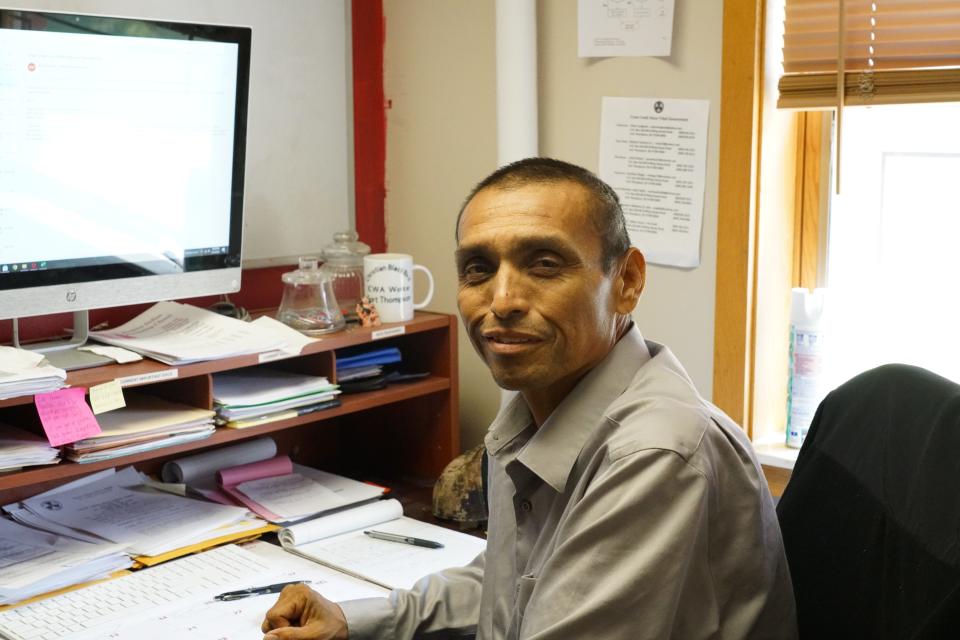
Juanita Scherich, in Pine Ridge, knows the struggle of not having someone in the office to pick up the phone.
She came out of a six-year retirement to retake her seat as the Oglala Sioux Tribe ICWA director. She was greeted by mountains of paperwork and cases. Two years later, the OST ICWA office is still trying to catch up with the hundreds of cases it takes on each year.
There are nine tribal ICWA directors in South Dakota. Their mission: exhaust all options to place a child with relatives or a Native foster family to keep them in contact with their culture and their community, which is required by the federal 1978 ICWA law. Only when all efforts are exhausted can a Native child be placed with a non-Native family.
Blackbird and Scherich are tired. Without proper staff, it hinders the directors’ ability to protect the state’s most vulnerable population before they enter the child welfare system.
An Argus Leader/South Dakota Searchlight investigation examined the issues Native families and children face inside South Dakota’s child welfare system. Native American children accounted for nearly 74% of the foster care system at the end of fiscal year 2023 — despite accounting for only 13% of the state’s overall child population. One in five Native children can expect to be placed in foster care by the time they turn 18.
“A lot of people think we could just help everybody, which I wish we could, but we can't,” Blackbird said.
Contracts between state and tribes help fund child welfare services
In South Dakota, the state contracts with five tribes to disburse federal dollars for child welfare services. The dollars, known as Title IV-E funds, help cover staffing and operating costs at the tribes’ ICWA offices, as well as payments to tribally licensed foster families and child guardians.
The Sisseton Wahpeton, Flandreau Santee, Standing Rock and Oglala Sioux tribes have Title IV-E contracts with the state. In 2021, the dollar amounts ranged from $40,000 for Flandreau Santee to $1.02 million for Oglala, according to the publicly available contracts.
Other tribes receive Title IV-E funds in other manners. The Rosebud Sioux Tribe applied for direct funding, but as of April, hadn’t moved forward with implementation of the program, according to the U.S. Department of Health and Human Services.
Five tribes also contract with the state for child protective services. For example, on the Crow Creek reservation, the tribe coordinates with CPS to place children with foster families licensed through the tribe. The Rosebud, Cheyenne River, Lower Brule and Yankton Sioux tribes also receive state CPS services.
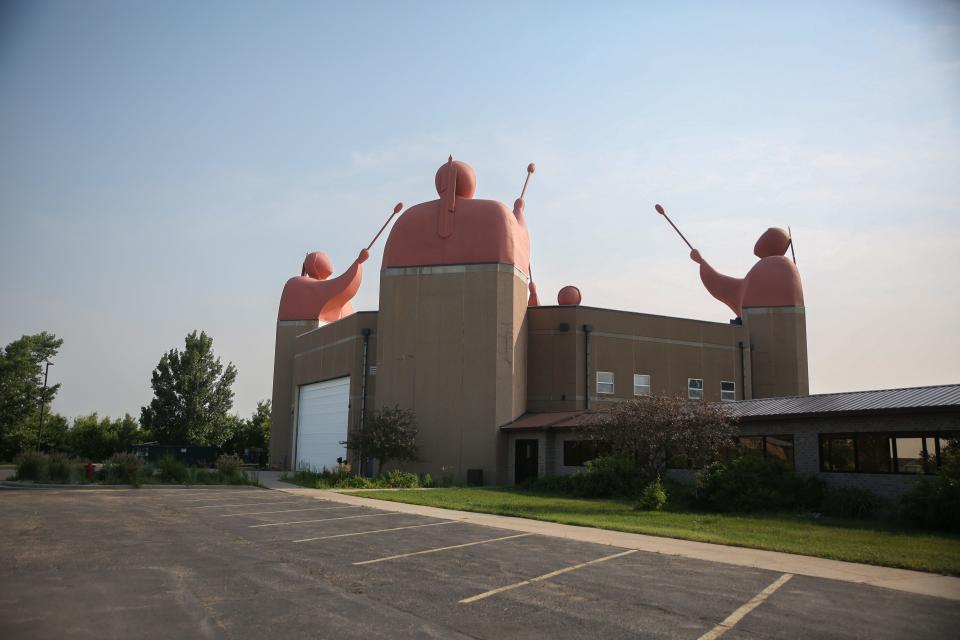
Sisseton Wahpeton, Flandreau Santee, Standing Rock and Oglala run their own CPS. It's a reflection of tribal sovereignty, said Sisseton Wahpeton Oyate Tribal Chairman J. Garret Renville.
The ultimate exercise of tribal sovereignty in foster care, in Renville’s eyes, would be for the state to remove itself as the middleman for disbursing Title IV-E funds.
“I think we're educated enough here and sophisticated enough here to be able to create some sort of program so that we can address those needs internally without the state involvement,” he said.
More: South Dakota inspired ICWA but still has high rate of Native children in foster care
Renville said if the Title IV-E funds weren’t passed through the state, it would be easier for the tribe to solve problems and direct resources to the right places.
“I think it would help the state in recognizing sovereignty: honoring sovereignty and honoring ICWA and honoring our culture,” he said.
State Tribal Relations Secretary David Flute said inadequate staffing in ICWA offices can impede tribes from filling out the forms needed for Title IV-E funds. According to Flute, it’s part of the reason the state contracts exist: to help fill that gap.
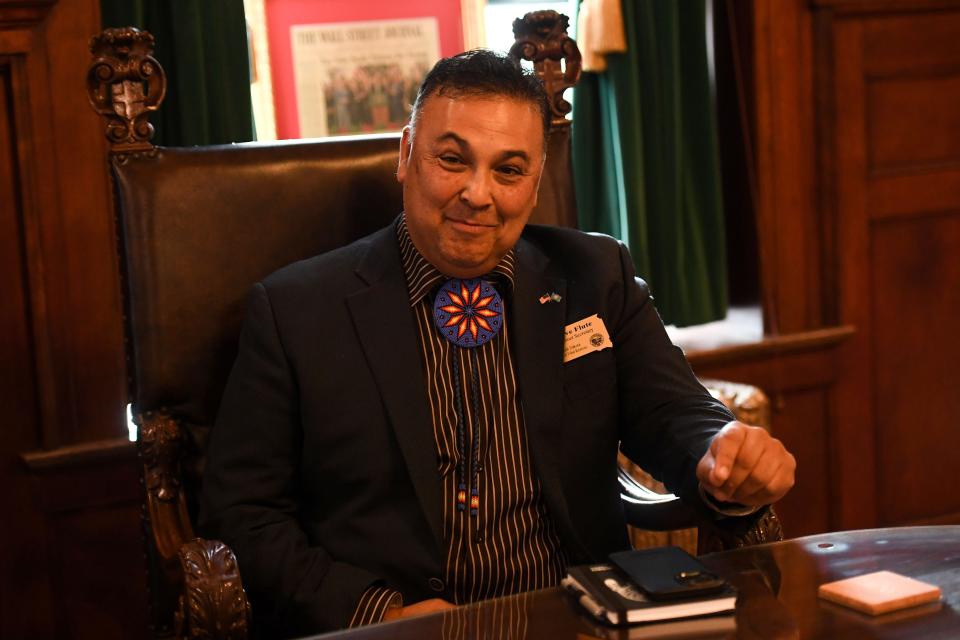
“I'm proud of the work that we're doing in partnership with DSS, of the support we get from the governor and her office,” Flute said, referring to the Department of Social Services. “And bringing forth resources for tribes to help them with their shortfalls. They might have to bring in some outside resources and help that is specifically for reconnecting kids and their parents.”
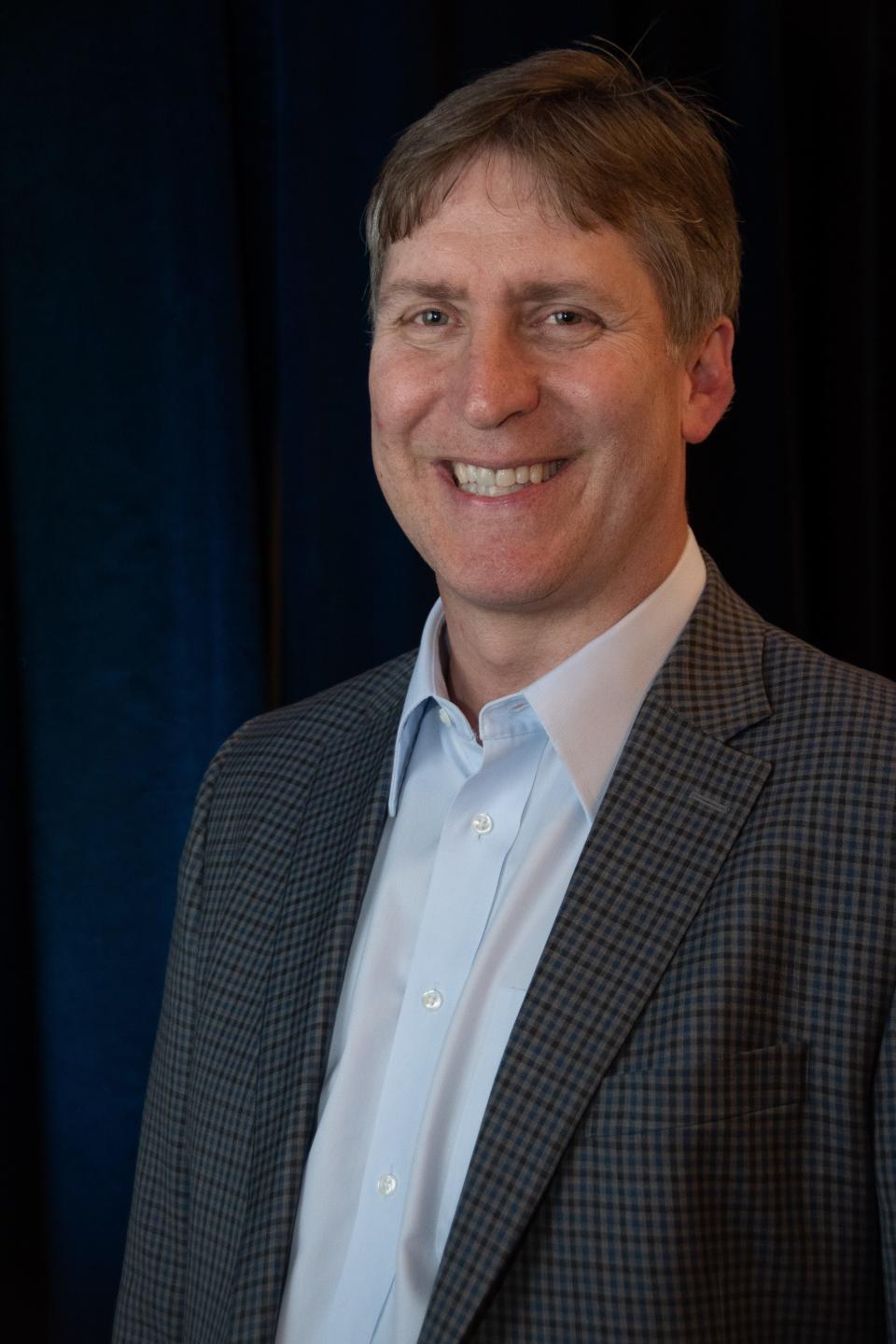
The state must match some of the federal government’s Title IV-E funding. For every dollar the state spends on child welfare, the federal government pays back 55 cents.
Some in Indian Country believe the state sees their children as a financial boon, believing the state receives more funding from the federal government when Native American children are placed in the state child welfare system.
But that’s not the case, said David Simmons, the director of government affairs and advocacy for the National Indian Child Welfare Association. The state may have “other kinds of incentives” to remove Native American children more often than their non-Native peers, he added, such as beliefs about the “right way” to raise a family.
“States don’t actually have a financial incentive,” Simmons said.
Lack of staffing
Despite contracts between the state and tribes for Title IV-E funds, tribal ICWA officers say they lack necessary resources to ensure Native children stay in or near their communities. The lack of resources also impacts their ability to quickly transfer cases to tribal courts.
Blackbird said his office relied on one part-time worker to fill the role before he was hired in 2022, and prior to that there were times when there was no one in the chair. There was no Crow Creek ICWA director for a year.
Housing, rather than a lack of qualified candidates, was the issue, Blackbird said.
“ICWA directors did not want to come here. There's no housing,” Blackbird said.
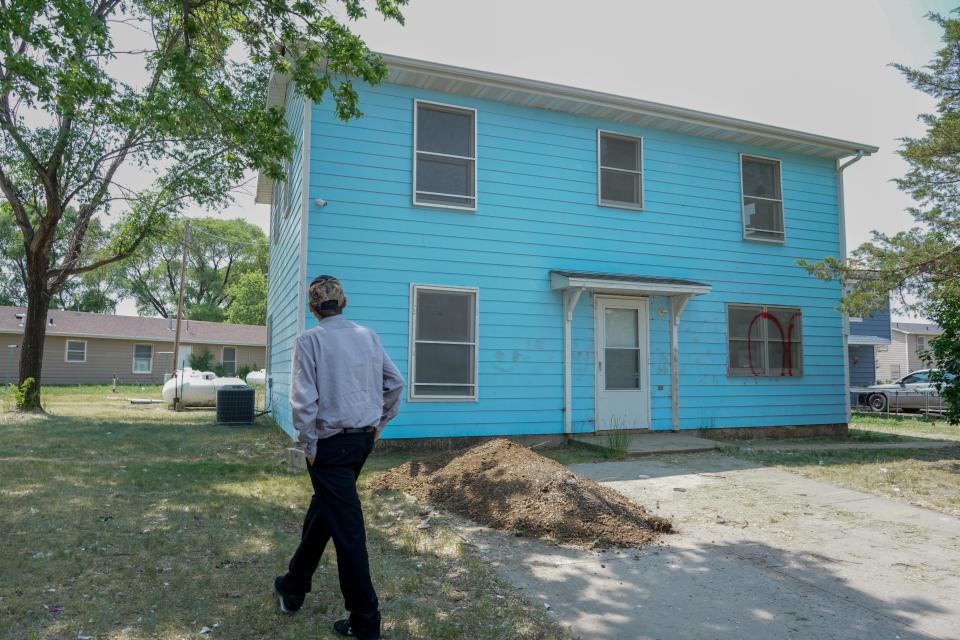
A new foster village remains unused at Crow Creek. The village, which is akin to a larger foster home where qualified staff act as foster parents and children remain in their community, doesn’t have staff to open its doors.
Blackbird is hopeful the tribe will eventually have resources to get its own CPS services started.
“I really think that Crow Creek is maybe a step or two back behind everybody else,” he said. “I keep telling everybody, ‘We already hit rock bottom, the best we can do is go up.’”
In the southwestern corner of the state, the Oglala Sioux Tribe is assessing what its needs are after declaring a state of emergency for the tribe's ICWA and CPS programs in 2022. The assessment will be done through the Child Welfare Capacity Building Collaborative.
The office struggles to retain staff and offers low salaries, said Alicia Mousseau, vice president of the tribe.
"We don't know what's truly needed until we have a full staff — we don't know what the actual caseload is or what the true need is until we have a well-oiled machine," Mousseau said.
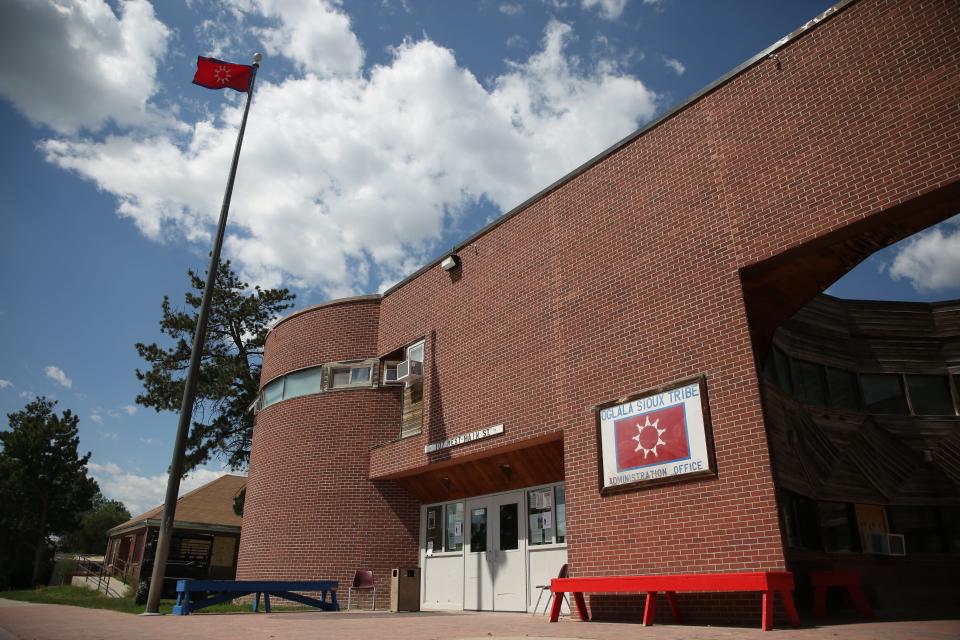
The ICWA supervisor salary (Scherich’s position) is $38,106 a year. The salaries for Oglala’s three ICWA specialists and its reunification caseworker are $27,014 a year.
Meanwhile, the base pay for an ICWA specialist in the United States on average is $51,000, according to Glassdoor.
The lack of staff in the Oglala Sioux ICWA office and CPS office has been noticed by state officials.
Matt Althoff, the DSS secretary, said transfer rates for Native children from state court to Oglala Sioux tribal court have “plummeted,” and the lack of resources in the tribe has led to a backlog of cases.
“I'm not telling anybody how to run a tribe, but I would focus on getting their ICWA resources up and running so we can permanently place [the children] or at least foster them within the tribe," he said.
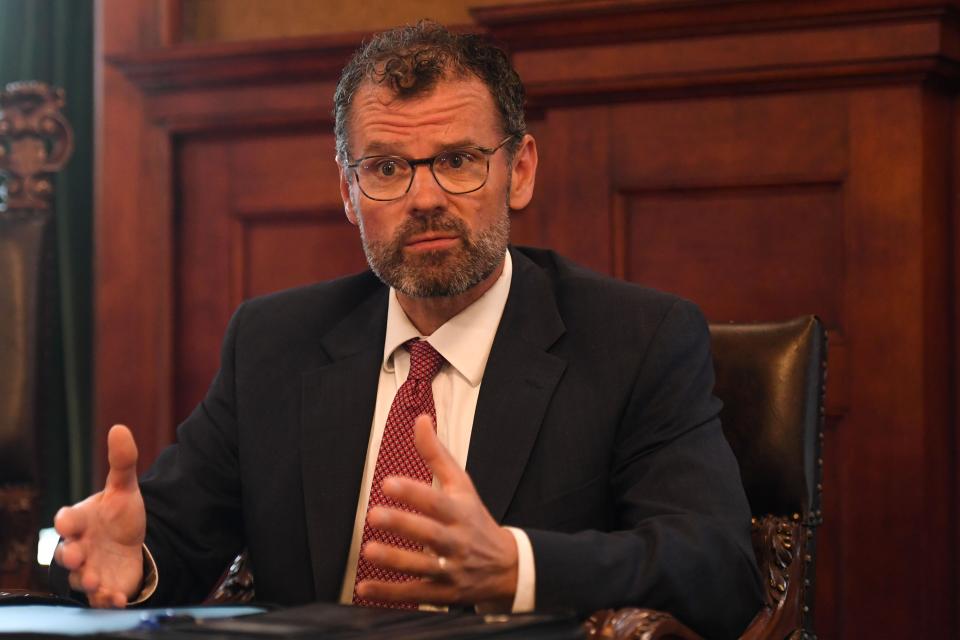
It was apparent to Scherich that something was wrong after she retired from her position as the Oglala ICWA director in 2015, after serving for 10 years. Multiple ICWA directors came in and out of the position while she was trying to relax in retirement.
"That's not normal. It was me for all those years and then something like every other year the office was changing and then there was nobody there," she said.
Scherich came back to the office to serve as acting ICWA director in 2021. She’s still there.
She was in the foster care system as a child and came back because “the system was broken.”
“We are a system of families. Families need to have resources when they're in trouble,” she said. “That's why it's needed. Children can be saved."
What can be done?
In a perfect world, Blackbird sees access to more resources – for substance abuse prevention and more staff – as a way to address the issues he sees every day.
“We'd have more funding. I'd be able to bring probably just about every case back to the tribe,” he said, adding that more funds would mean the tribe could become self-sufficient and start its own CPS office.
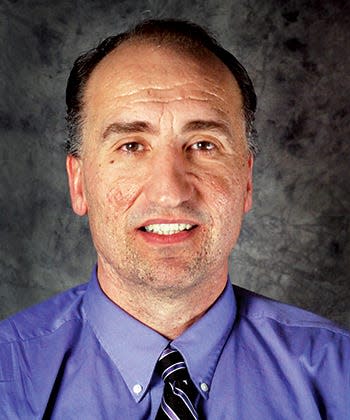
BJ Jones, a tribal judge and director of the Tribal Judicial Institute at the University of North Dakota, said he’d like to see Title IV-E funding changed to better support Indigenous children and ICWA.
"The federal government, the state and all the tribes need to just sit down and work this out," Jones said. "The feds have to be at the table because, after all, it was really the federal policies that started this through the removal of Native kids."
More: Where the money goes: Foster families get paid, relatives caring for children get nothing
Prevention services and stopping the removal of children from their families is already on the minds of the federal government. Title IV-E funds are being shifted to a new program called Family First Prevention Services, which uses some Title IV-E money to fund prevention services and address child abuse and neglect at its root.
South Dakota is one of the last four states to create a plan, which has yet to be finalized and approved by the federal government. Creation of the plan is a three-year process, with South Dakota being in its first year.
Mousseau added that there needs to be other avenues to find funding.
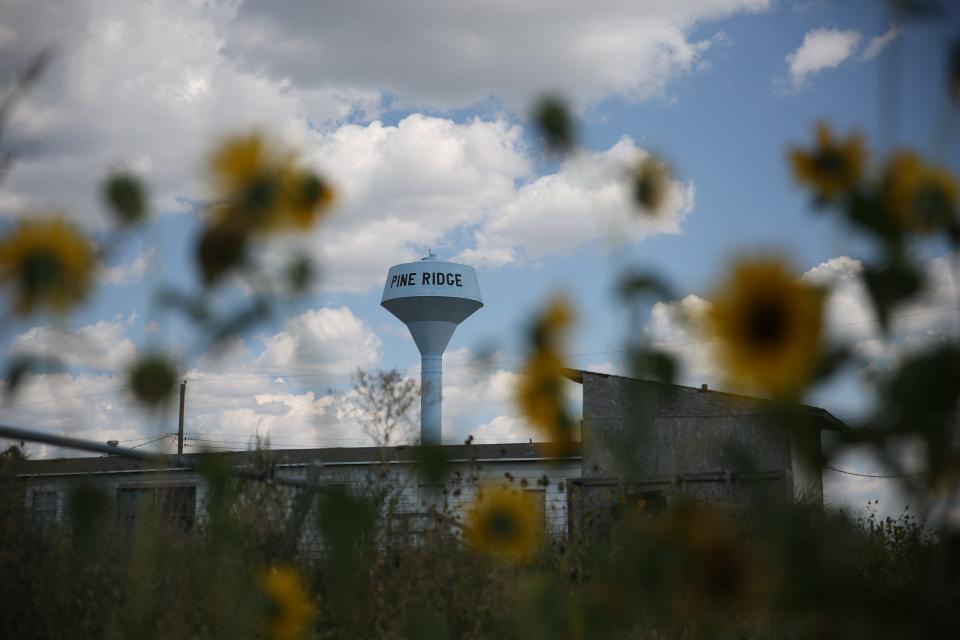
Oglala was awarded $100,000 in one-time funding in early 2023 from the federal government’s Tiwahe Initiative to develop a Tiwahe (family) plan aimed at improving case management services. The tribe applied for another Tiwahe Initiative grant program earlier this year.
"We always ask for more funding for services, but we need to figure out how to bring in philanthropic funding ... we have to start thinking outside of the box and thinking holistically," Mousseau said.
Gov. Kristi Noem added the state would be willing to work with the tribes so long as they come to the table with ideas on how to fix the problem so that there’s buy-in from all sides.
"The state can take an incredible lead from the tribal governments," Noem said. "Tell us what they need. And don't just say we need more money. We need to be spending money wisely in ways that are really effective. We would entertain, and have asked them many times, what more we can do to partner and serve."
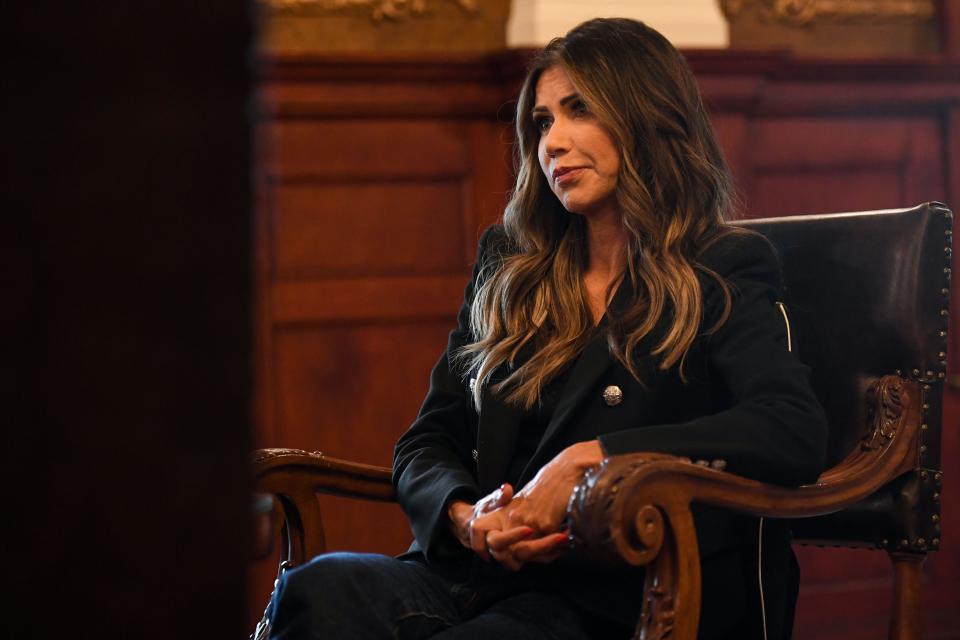
Simmons, the director of government affairs and advocacy for NICWA, said the association has worked with a number of states and tribes to develop positive relationships and come up with solution-based approaches to correcting the wrongs in foster care.
But the organization has had limited success in South Dakota in developing partnerships between the state and the tribes.
“It's been over many years and it's been really frustrating,” Simmons said.
This article originally appeared on Sioux Falls Argus Leader: Lack of staffing at tribal ICWA offices impacts foster care system

